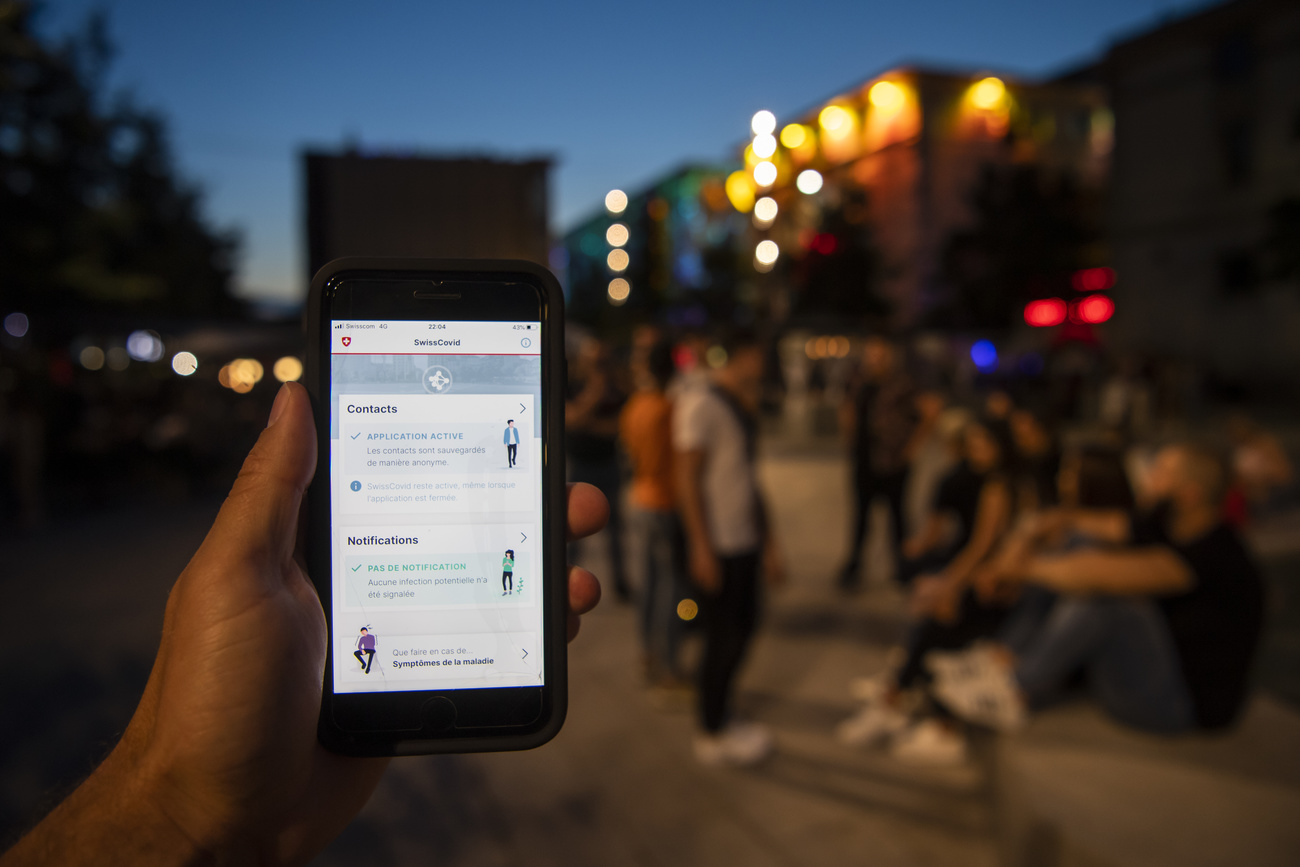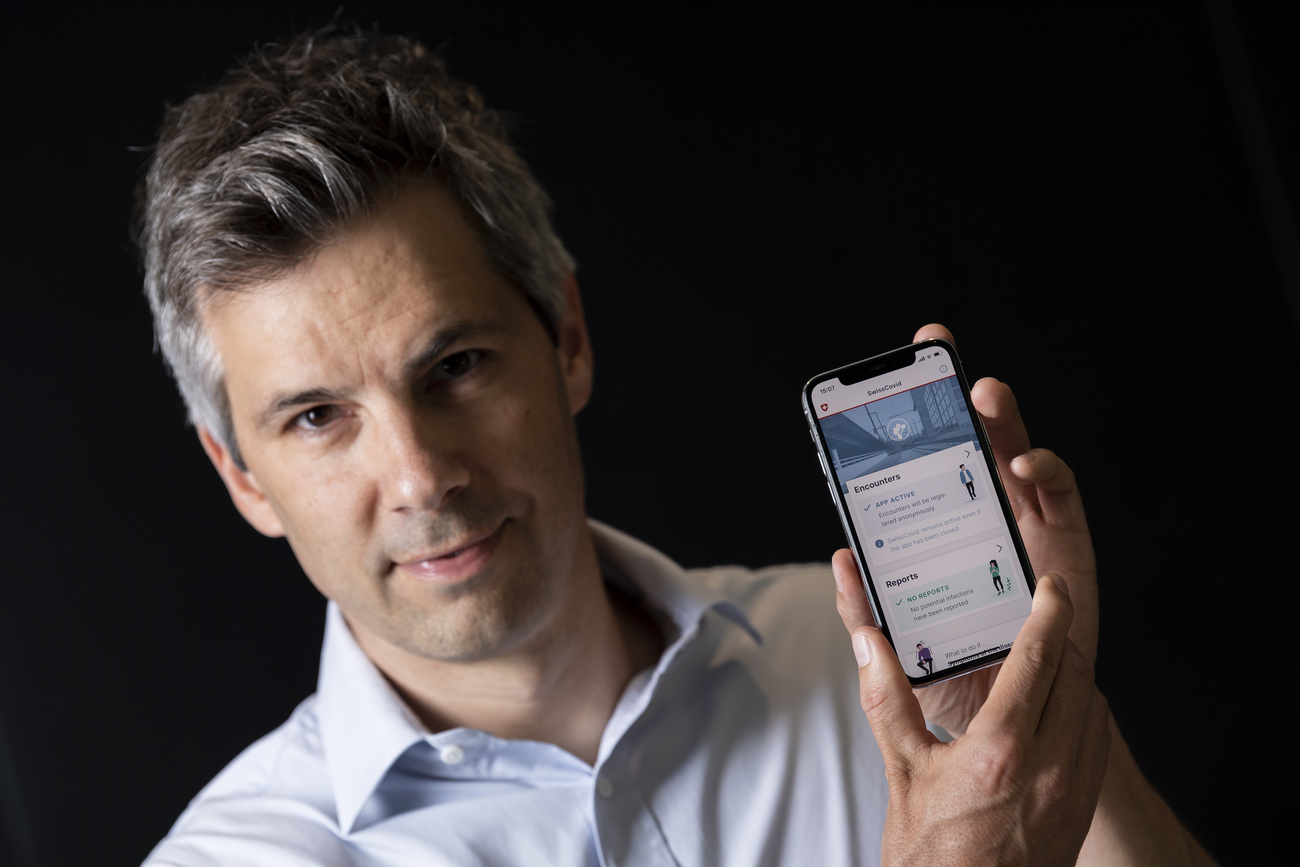
Group challenges law behind Covid-19 tracing app

A committee has launched a referendum against changes made to the Epidemics Act to allow the introduction of the SwissCovid tracing app. The citizens say they’re concerned about data security.
In June, parliament approved the legal basis for the app and amended the Epidemics Act with changes that are provisionally valid until the end of June 2022. The app was developed by public health officials in collaboration with researchers at the Zurich and Lausanne federal institutes of technology.

More
Switzerland launches SwissCovid tracing app for residents
Mainly based in French-speaking Switzerland, the referendum committee argues that there wasn’t a proper debate about potential risks of the tracing technology. Its members worry that data could be siphoned off via Bluetooth or operating systems, or that false positive cases could lead to unnecessary quarantine orders.
The Epidemics Act stipulates that “all appropriate technical and organisational measures” must be taken to ensure that participants cannot be identified. Data may only be stored on individual mobile phones and must be deleted when no longer required for notification. The proximity tracing system can be linked to foreign systems if the state in question guarantees adequate data privacy.
Currently some 1.15 million phones are running the SwissCovid tracing app, down from the two million downloads since its introduction in late June. Issues with battery life on older phones reportedly discouraged some users.
The group “Stop SwissCovid” has until October 8 to collect the 50,000 signatures required to force a referendum.

In compliance with the JTI standards
More: SWI swissinfo.ch certified by the Journalism Trust Initiative





























You can find an overview of ongoing debates with our journalists here . Please join us!
If you want to start a conversation about a topic raised in this article or want to report factual errors, email us at english@swissinfo.ch.